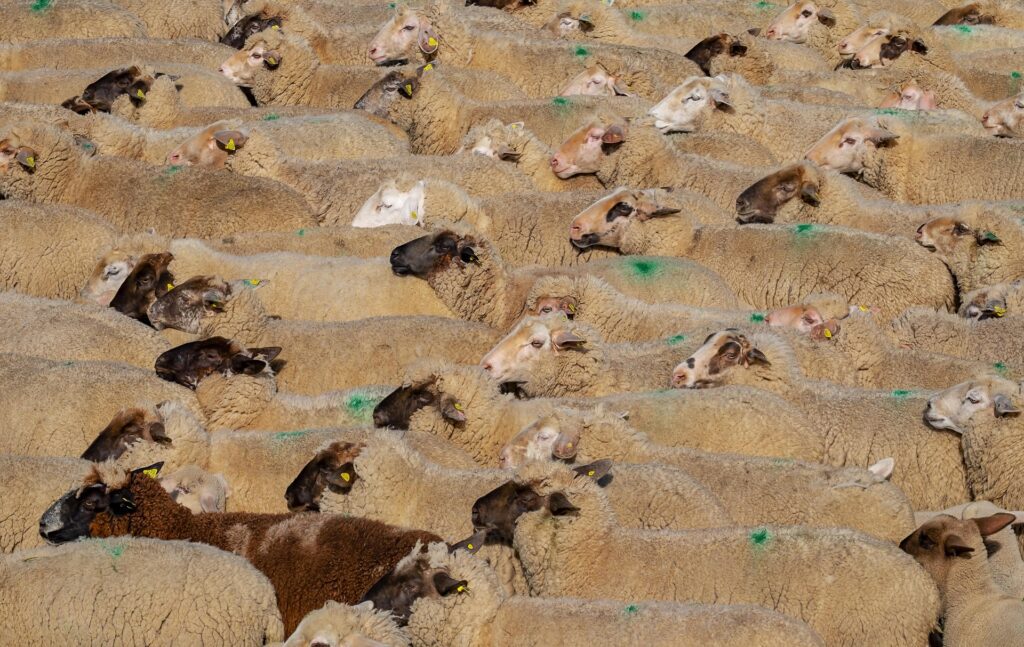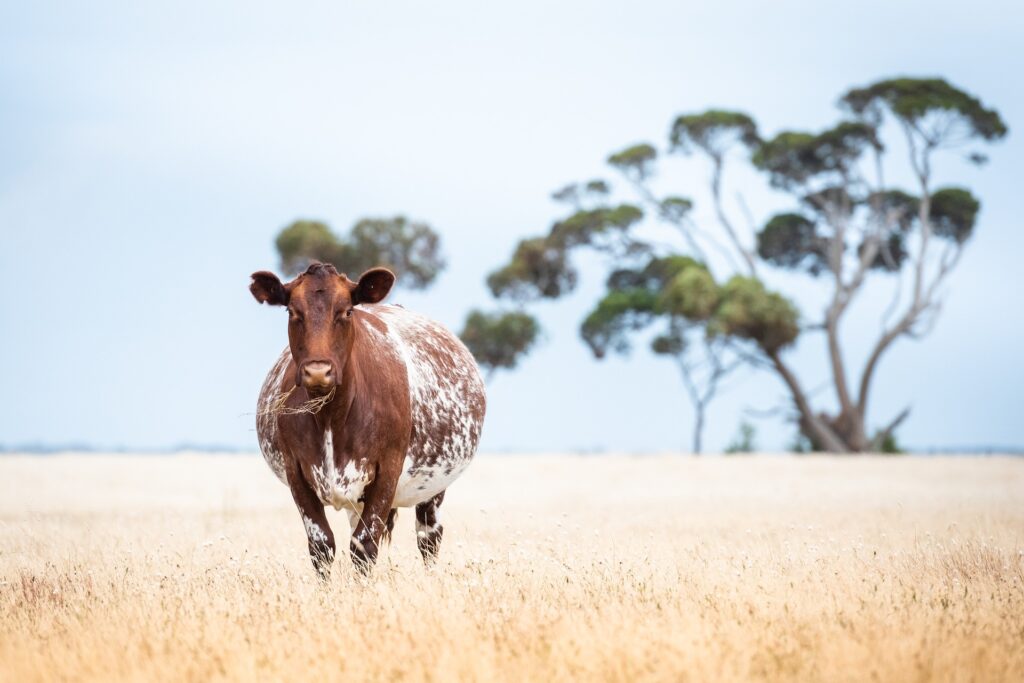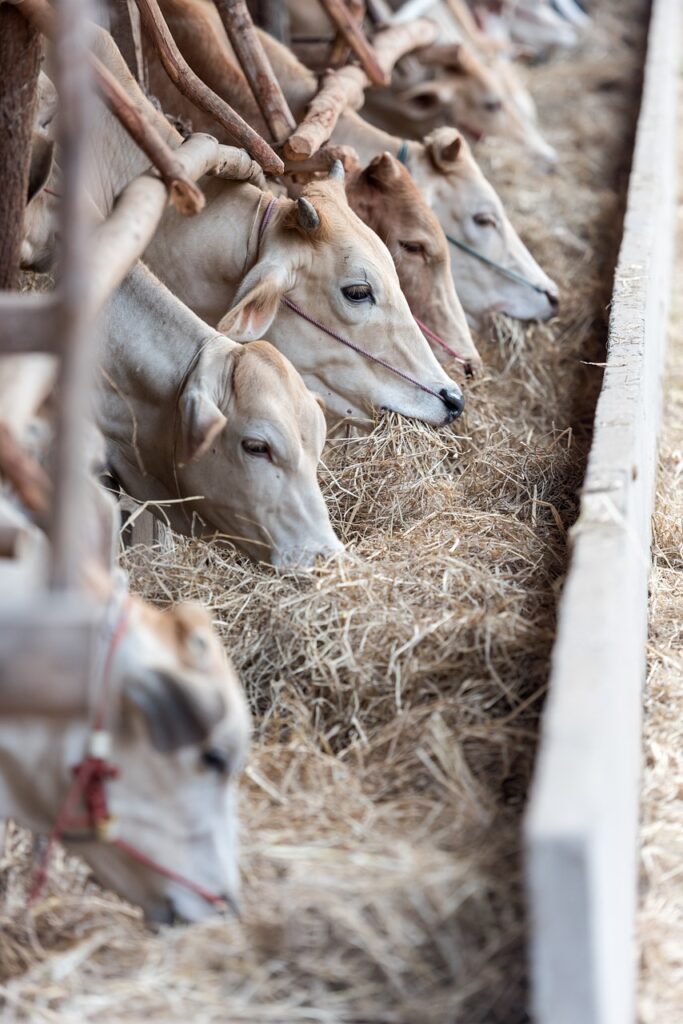Table of Contents
Introduction
Organic livestock farming represents a paradigm shift in agricultural practices, focusing on sustainability, animal welfare, and environmental health. Unlike conventional farming, which often relies on synthetic chemicals and intensive farming techniques, organic livestock farming emphasizes natural methods that nurture the land and animals. As consumer demand for organic products continues to rise, this sector not only offers health benefits but also presents unique opportunities for personal growth and professional success. In this blog, we will delve into the multifaceted advantages of organic livestock farming and explore how it can lead to a fulfilling career and lifestyle.
1. Understanding Organic Livestock Farming
What is Organic Livestock Farming?
Organic livestock farming is a sustainable agricultural practice that emphasizes the ethical treatment of animals, environmental stewardship, and the production of high-quality food products without synthetic chemicals or genetically modified organisms (GMOs). This approach not only promotes animal welfare but also enhances the health of ecosystems and communities. Below is a detailed exploration of organic livestock farming, its principles, practices, benefits, and challenges.
Definition and Principles of Organic Livestock Farming
Organic livestock farming refers to the production of animal products—such as meat, milk, and eggs—using methods that adhere to organic standards. These standards are designed to ensure that animals are raised in a manner that respects their natural behaviors and health needs. Key principles include:
- Health: Organic farming promotes the health of animals, humans, and the environment. This is achieved through natural feeding practices and preventative healthcare.
- Ecology: It emphasizes ecological balance by fostering biodiversity and maintaining healthy ecosystems. Organic farms often utilize crop rotations and intercropping to enhance soil fertility.
- Fairness: Organic practices aim for fairness in trading practices, ensuring that farmers receive a fair price for their products while also considering consumer rights.
- Care: There is a strong focus on caring for the environment, animals, and communities involved in organic farming.

Practices in Organic Livestock Farming
Organic livestock farming involves several key practices that distinguish it from conventional methods:
- Feeding: Animals must be fed 100% organic feed, which is free from synthetic additives, growth hormones, antibiotics, and GMOs. The feed should be grown without chemical fertilizers or pesticides. While trace minerals and vitamins may be supplemented when necessary, the primary diet consists of organically produced forage and grains12.
- Animal Welfare: Organic standards prioritize animal welfare by providing adequate space, access to pasture, and environments that allow for natural behaviors. Animals should not be confined in cages or tethered; instead, they should have access to clean bedding and shelter23.
- Healthcare: Preventive healthcare is emphasized over treatment. Herbal remedies or homeopathic treatments are preferred for managing health issues, with conventional veterinary medicines used only when necessary34. The routine use of antibiotics or growth promoters is strictly prohibited.
- Environmental Management: Organic farms manage waste responsibly to minimize pollution and enhance nutrient recycling. Manure from livestock can be composted and used as organic fertilizer for crops25.
Benefits of Organic Livestock Farming
Organic livestock farming offers numerous advantages:
- Healthier Products: Organic meat, dairy, and eggs typically contain higher levels of omega-3 fatty acids and antioxidants while being free from harmful chemical residues12. Consumers increasingly seek these products for their perceived health benefits.
- Environmental Sustainability: By avoiding synthetic fertilizers and pesticides, organic farming contributes to soil health and reduces pollution in waterways. It fosters biodiversity by supporting various species within farm ecosystems25.
- Animal Welfare: The emphasis on humane treatment leads to healthier animals with lower stress levels. This not only benefits the animals but also results in higher quality products for consumers34.
- Market Demand: With rising consumer awareness about health and sustainability, organic products often command higher prices in the market. This can lead to increased profitability for farmers who adopt organic practices26.
Challenges in Organic Livestock Farming
Despite its benefits, organic livestock farming faces several challenges:
- Transition Period: Converting a conventional farm to organic can take time (usually three years) during which yields may decrease as soil health improves5. Farmers must navigate this transition carefully to maintain financial viability.
- Higher Costs: The initial costs associated with certification and organic feed can be significant. Farmers may need to invest in infrastructure improvements to meet organic standards16.
- Market Competition: As demand grows, competition among organic producers increases. Farmers must differentiate their products through quality and marketing strategies7.
- Regulatory Compliance: Adhering to strict organic standards requires meticulous record-keeping and compliance with regulations set by certifying bodies6. This can be resource-intensive
Regulatory Standards
To be recognized as organic, farms must adhere to strict regulations set forth by certifying bodies such as the USDA in the United States or equivalent organizations globally. These standards dictate:
- Animal Husbandry Practices: Animals must have access to outdoor spaces and be fed organic feed.
- Land Management: Soil health must be maintained through crop rotation, cover crops, and composting.
- Certification Process: Farmers must undergo a rigorous certification process that includes documentation of practices, inspections, and compliance with organic standards.
Understanding these regulations is crucial for anyone looking to enter the organic livestock sector.
2. Benefits of Organic Livestock Farming
Health Benefits
The health benefits of organic livestock products are significant. Research indicates that organic meat, dairy, and eggs often contain higher levels of essential nutrients compared to their conventional counterparts. For example:
- Omega-3 Fatty Acids: Organic products typically have higher concentrations due to pasture-based diets.
- Antioxidants: Organic foods are richer in antioxidants, which are beneficial for reducing inflammation and combating chronic diseases.
Moreover, consumers benefit from reduced exposure to harmful chemicals commonly used in conventional agriculture, such as pesticides and growth hormones. This shift towards healthier food options aligns with a growing public awareness regarding nutrition and wellness.
Animal Welfare
Organic livestock farming places a strong emphasis on animal welfare. Animals are raised in environments that allow them to exhibit natural behaviors such as grazing, socializing, and nesting. Key aspects include:
- Access to Pasture: Organic standards require that animals have ample outdoor space.
- Natural Diets: Animals are fed organic feed without synthetic additives or antibiotics.
- Ethical Treatment: Farmers are encouraged to adopt humane practices that prioritize the well-being of their livestock.
The ethical considerations inherent in organic farming resonate with consumers who are increasingly concerned about animal rights.


Environmental Sustainability
Organic livestock farming contributes positively to environmental sustainability in several ways:
- Soil Health: Practices such as crop rotation and composting enhance soil fertility and structure.
- Biodiversity Preservation: Organic farms often support diverse ecosystems by maintaining varied plant species.
- Reduced Pollution: By avoiding synthetic fertilizers and pesticides, organic farms minimize chemical runoff into waterways.
These practices not only improve farm productivity but also protect natural resources for future generations.
3. Economic Advantages
Market Demand for Organic Products
The market demand for organic products has seen exponential growth over the past decade. According to industry reports, the global organic food market is projected to reach $500 billion by 2028. Factors driving this demand include:
- Health Consciousness: An increasing number of consumers prioritize healthful eating habits.
- Environmental Awareness: Many consumers prefer products that align with their values regarding sustainability.
This rising demand presents lucrative opportunities for farmers who transition to organic practices.
Cost-Benefit Analysis
While transitioning from conventional to organic farming may involve higher initial costs—such as certification fees and investments in sustainable infrastructure—the long-term benefits can outweigh these challenges:
- Price Premiums: Organic products typically command higher prices in the market due to their perceived quality.
- Long-Term Profitability: Once established, organic farms can achieve greater profitability through direct sales at farmers’ markets or through community-supported agriculture (CSA) programs.
Conducting a thorough cost-benefit analysis is essential for prospective farmers considering this transition.
4. Overcoming Challenges in Organic Livestock Farming
Common Challenges
Despite its numerous benefits, organic livestock farming does come with challenges:
- Higher Operational Costs: Initial investments can be significant due to the need for specialized equipment or facilities.
- Lower Yields During Transition: Farmers may experience reduced yields during the initial years as they adapt their practices.
- Pest Management Issues: Without synthetic pesticides, managing pests can be more challenging.
Understanding these challenges is crucial for anyone entering the field.


Strategies for Success
To overcome these challenges, successful organic farmers implement various strategies:
- Education and Training: Participating in workshops or training programs can provide valuable insights into effective organic practices.
- Community Support: Building networks with other farmers can facilitate knowledge sharing and resource pooling.
- Innovative Practices: Utilizing techniques such as integrated pest management (IPM) can help mitigate pest issues while maintaining sustainability.
By adopting these strategies, farmers can enhance their chances of success in the organic sector.
5. Personal Growth through Organic Farming
Skill Development
Engaging in organic livestock farming allows individuals to develop a wide range of skills:
- Animal Husbandry Skills: Knowledge about proper care, breeding, and nutrition of livestock is essential.
- Business Management Skills: Running an organic farm requires understanding financial management, marketing strategies, and customer relations.
This diverse skill set not only enhances employability but also fosters personal development.
Community Engagement
Organic farmers often find themselves part of a vibrant community committed to sustainability:
- Networking Opportunities: Engaging with local agricultural groups or cooperatives can lead to valuable connections.
- Consumer Relationships: Building relationships with customers through direct sales fosters loyalty and trust.
Being part of an engaged community provides emotional support and motivation while promoting shared values around sustainability.


6. Case Studies and Success Stories
Highlighting successful examples can inspire others considering this path. For instance:
Case Study: Farmer X
Farmer X transitioned from conventional methods after witnessing firsthand the detrimental effects of chemical use on both animals and land. After adopting organic practices:
- They reported improved animal health and increased product quality.
- Their farm became a local favorite at farmers’ markets due to the transparency in their production methods.
Case Study: Farmer Y
Farmer Y utilized innovative approaches like rotational grazing combined with agroforestry techniques. This not only enhanced soil health but also diversified income streams through selling both meat and timber products. Their story illustrates how dedication to sustainable practices can lead to personal fulfillment alongside financial success.
Conclusion
Organic livestock farming offers numerous benefits extending beyond economic gains; it fosters personal growth, ethical responsibility, and environmental stewardship. As interest in sustainable food sources continues to rise globally, now is an opportune time for individuals seeking meaningful careers or lifestyle changes to explore the world of organic farming. By embracing these practices, aspiring farmers can contribute positively to society while achieving personal fulfillment through their work.